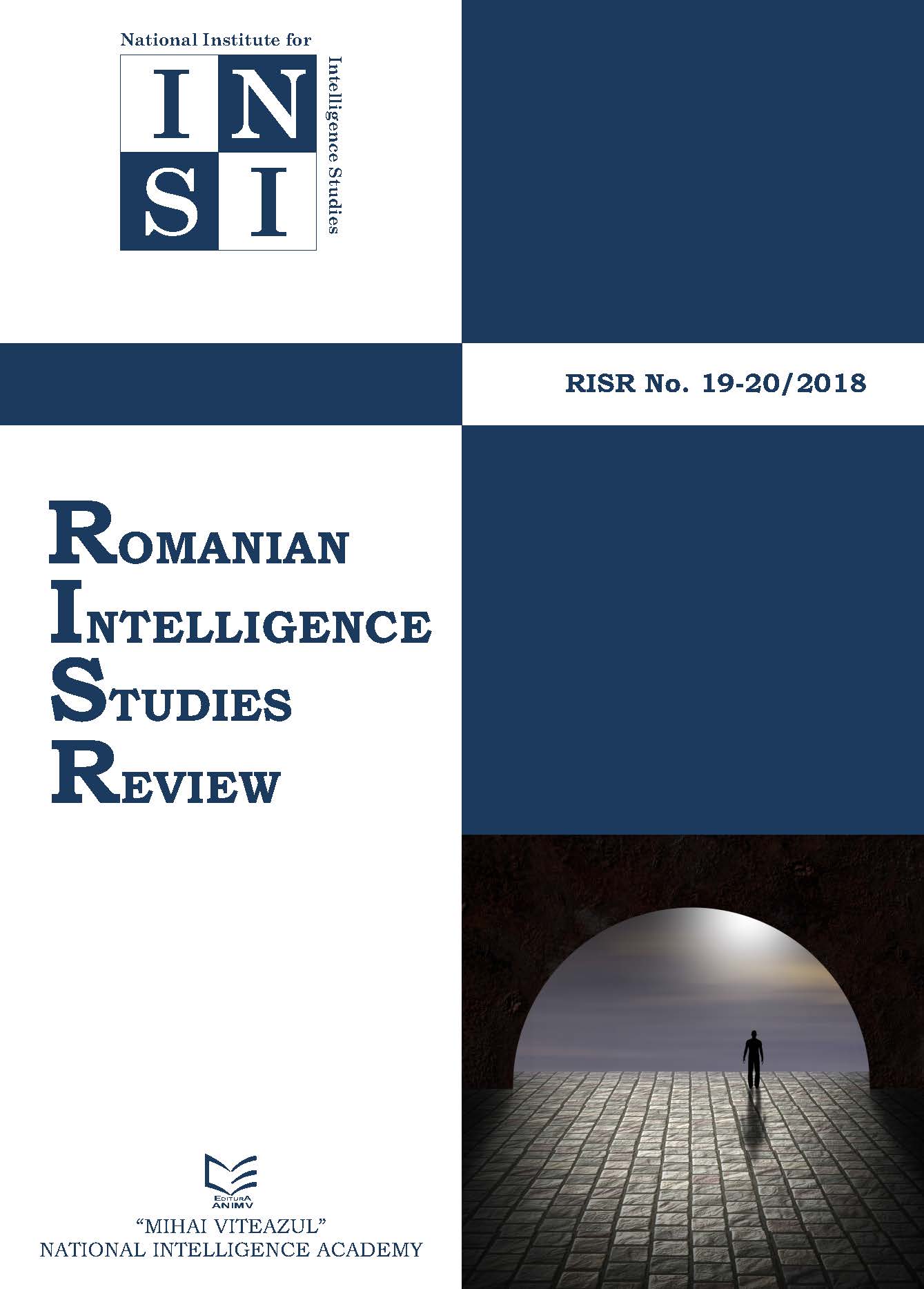EXPLORING UNKNOWN UNKNOWNS IN INTELLIGENCE ANALYSIS
EXPLORING UNKNOWN UNKNOWNS IN INTELLIGENCE ANALYSIS
Author(s): Patrick RUSSubject(s): Politics / Political Sciences, Security and defense
Published by: National Institute for Intelligence Studies
Keywords: Cognitive biases; exploration; intelligence analysts; knowledge/ignorance imbalance; unknown unknowns;
Summary/Abstract: Intelligence analysts are confronted always with gaps in the intelligence cycle that limit their understanding, explanation and prediction of phenomena that are outside their subjective and bounded rationality knowledge horizon. When they reach the inflection point in intelligence analysis, they are either inclined to make guesses or estimates that are based on their experiences and cognitive biases. Going far ahead the inflection point, there is the highest level of uncertainty that goes far beyond our capability to understand, explain and predict the phenomena. The highest level of uncertainty can be traced back to concepts such as Thucydides’ tyche or Rumsfeld’s unknown unknowns. How can we approach and assess this level of uncertainty? Our position paper argues that this level of uncertainty represents the knowledge/ignorance imbalance in our brains. In order to explore the unknown unknowns, we need to determine this imbalance by approaching the processes and mechanisms that generate ignorance in the Leibnizian and Xenopolian manner. This line of inquiry is convergent with the exploration concept that means “action at a distance”. Exploration establishes the (mediating) link between intelligence and immediate action on a tight timeline. Historically, in the Roman Empire, exploratores operated at a geographically and temporally distance to detect, check, monitor, prevent, and react in case of unknown unknowns. “Back to the future”, intelligence analysts have to be like exploratores and to look at all the possible indications far ahead their immediate knowledge horizon.
Journal: Romanian Intelligence Studies Review
- Issue Year: 2018
- Issue No: 19-20
- Page Range: 5-14
- Page Count: 8
- Language: English

